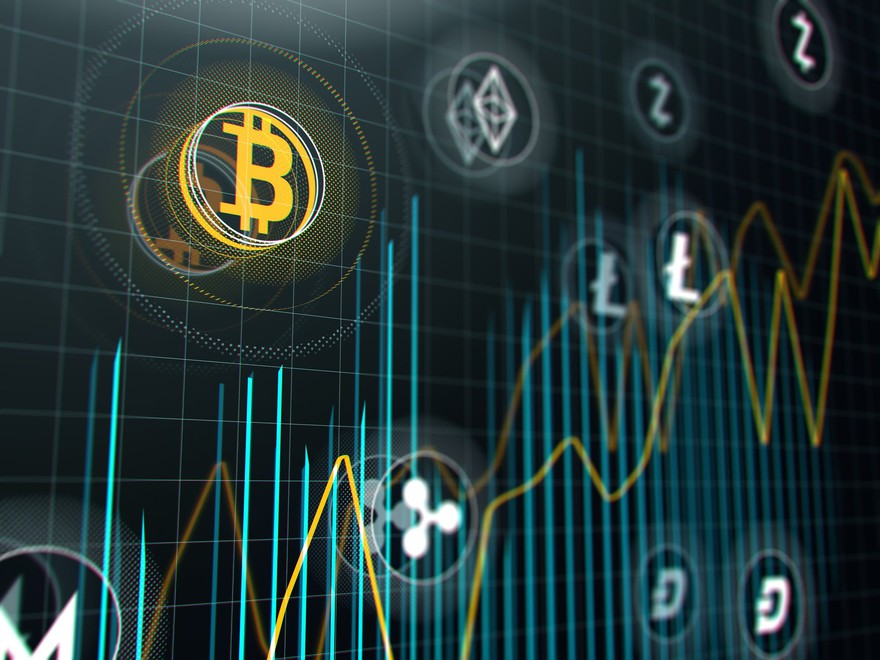Cryptocurrency is a new way of doing things. As such, it comes with rules and regulations that differ from traditional finance. If you want to get started with cryptocurrency investments, here are five tips to help you avoid common pitfalls that many crypto beginners make:
Understanding Market Caps
Market cap is the price of a cryptocurrency multiplied by the total number of coins in circulation. It’s a measure of how much money you could make if you sold all your coins at that price.
For example, if there are 10 billion Dogecoins in circulation and each coin is worth $1, then Dogecoin’s market cap would be $10 billion.
Market cap can also be calculated using fiat money instead of cryptocurrency units. For example, if there are 100 million ethers in circulation and each ether is worth $1 (that’s about what it was when Ethereum launched), then Ethereum’s market cap would be around USD 100 million.
Market cap is an essential factor in crypto investment. The market cap will tell you the value of your coins at any given moment, giving you insight into the sustainability of that coin. Tokens are typically created with a limit on how many tokens will ever be minted. The market cap is calculated based on the number of tokens in circulation. If there are still a significant amount of tokens to be minted and demand is high, this blockchain project may be a better investment than others.
Read the Whitepaper
A whitepaper is an informational document detailing a cryptocurrency project’s purpose and goals. The team behind a coin will often release a whitepaper to explain exactly what their technology does and how it works. If a coin has no whitepaper, this may be a sign that it’s not legitimate or not significantly developed yet. Whitepapers can also help investors understand what makes different coins unique from one another. The unique tokenomics of each new coin will all be laid out in the whitepaper published with the creation of the token. The goals and motivations behind creating that token could range from attempting to solve an existing issue in the crypto space to social impact and altruism through cryptocurrency and blockchain technology. The whitepaper of a token can offer insight into the project’s long-term sustainability.
Your Exchange Matters
First, you only want to buy crypto from a legitimate exchange. If you’re trying to buy crypto from someone, there’s a good chance that person will rip you off or sell you fake coins.
Exchanges are usually centralized, meaning a third party operates them and takes a fee for every transaction on the platform. Centralized exchanges are generally high-security and very user-friendly, such as the FTX exchange. On the FTX exchange, traders can access over 300 cryptocurrencies to diversify their portfolios. A good exchange will also offer users a broad knowledge base to learn the ins and outs of the industry. If you’re wondering where to buy Solana, ETH, or any other crypto, how to trade on margin or any other question about the crypto space, your exchange should provide resources and user-friendly information to get you the knowledge you need for success.
Store Your Coins Safely
The next thing to know is how to store your cryptocurrency safely and securely. You want to keep your cryptocurrency where no one else can access it, including hackers and thieves. And you want the ability to access it whenever you need it, even if the internet goes down.
There are two main places where people store their cryptocurrency: online exchanges (where someone else holds custody of their assets) or cold storage wallets (which are held on devices not connected to the internet).
Cold storage wallets come in two forms: hardware wallets and paper wallets. Hardware wallets use unique technology to protect users’ private keys from being stolen while connected online; paper wallets provide extra security by printing out all of their private keys in advance, so they never need to be stored digitally. Not only can you keep your crypto in your digital wallet, but this is also where any NFTs you purchase will be stored and accessible.
Prepare for Risk
Once you’ve bought your first coins, it is essential to keep them safe. Many stories have been of people losing their crypto-assets because they stored them on a hacked exchange. Alternatively, some exchanges have shut down without warning and taken their users’ money. Remember: cryptocurrencies are not insured by any government or financial institution; if you lose access to your account or fail to secure it correctly, the likelihood of getting back what’s yours is slim.
To avoid these pitfalls, it’s essential to protect yourself and your funds as much as possible. Here are a few safety tips:
Don’t invest more than you can afford to lose – Cryptocurrencies are a young market and therefore highly volatile—in other words, don’t risk more money than necessary on this venture!
Don’t invest all of your money in one coin – This goes hand in hand with the previous tip: diversify! Spread out how much currency you put into each project so that if one fails, it won’t impact all of your investments too profoundly–you’ll still have something left over after disaster strikes.
These are just a few essential tips for anyone considering investing in crypto. There are still risks to investing in cryptocurrency, but they are smaller now than years ago due to increased security and awareness. You can start your crypto journey today by joining an online crypto community such as FTX, where you can learn more about the industry and begin trading on the same platform.

